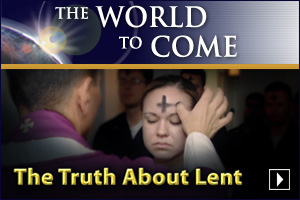Verse 1 records, “And Hezekiah sent to all Israel and Judah, and wrote letters also to Ephraim and Manasseh, that they should come to the house of the Lord at Jerusalem, to keep the Passover unto the Lord God of Israel.”
The Passover mentioned in this verse took place before Israel and Judah were taken prisoner by the Assyrians. Background to this period must quickly be reviewed.
The temple at Jerusalem was cleansed and restored in the first year and first month of Hezekiah’s rule (see II Chron. 29:3-36). In the second month of Hezekiah’s first-year rule, the Passover was observed (II Chron. 30:2). The general captivity by the Assyrians took place during King Hezekiah’s sixth year of ruling: “And it came to pass in the fourth year of king Hezekiah…that Shalmaneser king of Assyria came up against Samaria, and besieged it. And at the end of three years they took it: even in the sixth year of Hezekiah…Samaria was taken” (II Kings 18:9-10).
Concerning the Passover observance, II Chronicles 30 further records, “Nevertheless divers of Asher and Manasseh and of Zebulun humbled themselves, and came to Jerusalem” (vs. 11). At first glance, this scripture appears to say that the entire tribes of Manasseh, Asher and Zebulun humbled themselves before God. However, the King James Version correctly uses the word divers, which means “various” and “several.” This is undoubtedly a reference to some within the tribe—not all.
Verse 18 states, “For a multitude of the people, even many of Ephraim, and Manasseh, Issachar, and Zebulun, had not cleansed themselves, yet did they eat the Passover otherwise than it was written. But Hezekiah prayed for them, saying, The good Lord pardon every one” Not all Israelites were present for the Passover. This scripture speaks only about those who were in attendance.
II Chronicles 31:1 records that they did not remain in Judah; they all returned home after the Passover. It is vital to note that this all occurred before the general Assyrian captivity of Israel. (To learn more about why Israel was taken into captivity, please refer to our book America and Britain in Prophecy.)
While newspapers, magazines and other news media report what happened, The Real Truth analyzes and explains the root cause of why events happen—why humanity is at a loss to solve today’s problems.



















